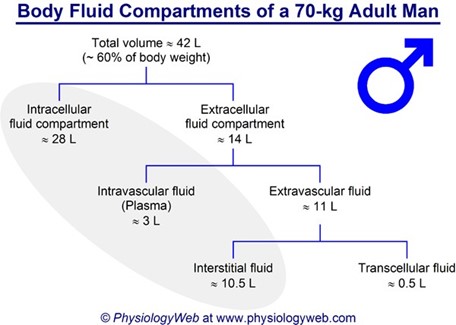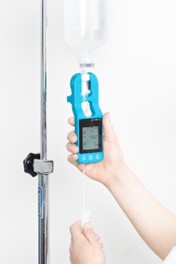A patient with congestive heart failure is at risk of excess fluid volume. Which intervention will best determine if the patient is beginning to have excess fluid volume?
Daily intake and output recordings
Daily weights
Daily blood pressure and heart rate checks
Daily CMP lab draw
The Correct Answer is B
Daily weights provide a reliable and accurate measure of fluid balance in the body. An increase in weight can indicate fluid retention and the need for further intervention. While daily intake and output recordings, blood pressure and heart rate checks, and CMP lab draws can also provide useful information, daily weights are the most effective way to monitor for excess fluid volume in this situation.

Nursing Test Bank
Naxlex Comprehensive Predictor Exams
Related Questions
Correct Answer is A
Explanation
The client's greenish-yellow sputum with a musty odor may indicate an infection, such as pneumonia or bronchitis, which can affect the client's lung function. By auscultating bilateral breath sounds, the nurse can assess for the presence of abnormal lung sounds, such as crackles or wheezing, which may indicate further respiratory compromise.
While obtaining a blood culture for tuberculosis (option b) may be appropriate in certain circumstances, the client's sputum color and odor do not necessarily indicate tuberculosis as the cause of their respiratory symptoms.
Requesting pulmonary function studies (option c) may also be beneficial in assessing the client's lung function, but this is not the priority assessment in this situation.
Finally, while documenting the findings (option d) is an important aspect of nursing care, it is not the priority action when the client is presenting with signs of compromised lung function.

Correct Answer is B
Explanation
: A client with renal disease may have impaired kidney function, which can affect fluid balance in the body. Giving fluids too quickly or increasing the infusion rate too quickly can lead to fluid overload,
which can exacerbate the client's condition. It is important for the nurse to monitor the amount of fluid the client is receiving to ensure that the infusion rate is appropriate for the client's condition and to prevent fluid overload. Checking the intravenous rate every two days is not sufficient; the nurse should monitor the rate regularly and adjust it as necessary based on the client's response.

Whether you are a student looking to ace your exams or a practicing nurse seeking to enhance your expertise , our nursing education contents will empower you with the confidence and competence to make a difference in the lives of patients and become a respected leader in the healthcare field.
Visit Naxlex, invest in your future and unlock endless possibilities with our unparalleled nursing education contents today
Report Wrong Answer on the Current Question
Do you disagree with the answer? If yes, what is your expected answer? Explain.
Kindly be descriptive with the issue you are facing.
